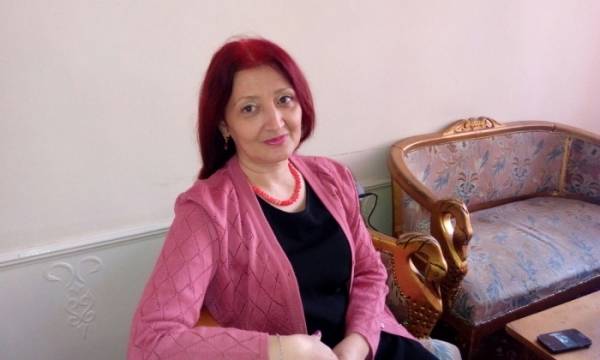Gulnara Inandzh
Director
International Online Information Analytic Center Ethnoglobus,
related info www.turkishnews.com
Syrian President Bashar Asad’s visit to Baku, which took place immediately after Israeli President Shimon Peres visited Azerbaijan and which Asad said bore a strategic character, points to a possible mediating role for Azerbaijan in negotiations between Syria and Israel. [1] That is all the more the case because over the last several years, both Israel and the United States have pushed for the strengthening of the position of Azerbaijan in the Middle East in order to have another partner there alongside Turkey.
Indeed, now a suitable time has arisen as a result of that effort, and consequently, Tel Aviv and Washington have offered Azerbaijan a mediating mission in the Middle East and the role of a gas transit route to Europe bypassing Russia. For the first role, Azerbaijan is a key to American and Israeli efforts to reduce Russian influence in Iran and Syria and more precisely to cut the tie among the members of this triangle. And consequently, Israel and the US have offered concessions and attractive proposals.
In the dialogue between Damascus and Jerusalem, the primary focus is on the return to Syria of the Golan Heights which have been under Israeli occupation since the Six day way in 1967. During his visit to Baku, President Peres said that “Syrian President Bashar Asad must understand that he cannot receive on a silver platter the Golan Heights if he continues his ties with Iran and his support of Hezbollah. [2] At the same time, he sent a message to Tehran with whom a discussion on the Syrian question appears to be in the offing.
If it is able to achieve its goals, Israel may return the Golan Heights, but having given up these territories, Tel Aviv must receive a security guarantee for Israel. However, Damascus cannot completely break its ties with Teheran and its satellite Hezbollah and give a full guarantee that after the return of the strategically important Heights, Iran will not terrorize Israel. Only Tehran can give a guarantee of non-aggression against Israel whether or not the Golan Heights are returned. [3]
The Golan Heights are only the visible part of a game behind which stand the economic security of the Middle East and the West. After Peres and Asad visited Baku, US Deputy Secretary of State James Steinberg arrived, along with Philip Gordon, the assistant secretary for Europe and Eurasia. During the visit, they discussed with Azerbaijan’s leadership the issue of US support for the diversification of energy supplies. Stressing that the US is not seeking to exclude Russia from this process, he pointed to a variety of energy plans that would involve Azerbaijan with Syria and Iran. At the same time, with this set of talks, conversations about the Nabucco gas pipeline, which would reduce Europe’s dependence on Russian gas, took off.
And at the same time, US President Barak Obama decided to reopen the American embassy in Damascus which had been closed four years ago.
All these statements and actions help explain why Damascus has now declared its readiness to be part of the Baku-Tbilisi-Erzurum gas pipeline and to purchase oil from Iraq.
Of course, the US and Israel, by attracting Syria to their side, intend to isolate Iran, but since all the major Iranian gas fields remain beyond the control of the West, it is hardly possible to gain the complete isolation of Iran. Therefore, for the US and Israel, it is important to involve Iran in a dialogue through one or another third country, including among them Azerbaijan. But the most important link in this chain is the freeing of Iran from Russian manipulation. For that, Iran must become involved in one of the Western gas projects, otherwise the Iranian-Armenian gas pipeline through Georgia will become tied to Russia and Iranian gas will be under the control of the Kremlin.
In addition to this, the time has come for the development of new gas fields in the Caspian, part of which are in disputed areas. And here too it is necessary to free Iran from Russian influence since official Iranian circles consider that not Tehran but rather Russia is preventing the resolution of the status of the Caspian. Therefore, a mediating role for Azerbaijan among the US, Israel and Syria will require the intensification of negotiations between the presidents of Azerbaijan and Iran.
Notes
[1] “Azerbaijan will reconcile Syria with Israel” [in Russian], 11 July, available at: (accessed 3 August 2009).
[2] RosBalt (2009) “Israel: Syria will not be able to both get the Golan Heights and continue its friendship with Iran” [in Russian], RosBalt, 6 July, available at: (accessed 3 August 2009).
[3] IzRus (2009) “Azerbaijan is ready to mediate in reconciling Israel with Syria and Iran”, 19 July, available at: http://izrus.co.il/dvuhstoronka/article/2009-07-19/5372.html (accessed 3 August 2009).





